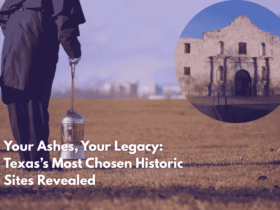Cambridge, MA – In a dramatic escalation of tensions between the federal government and higher education institutions, the Trump administration is reportedly pushing the Internal Revenue Service (IRS) to revoke Harvard University’s tax-exempt status, according to reports from CNN and The Washington Post published on April 16, 2025.
The decision follows President Donald Trump’s ongoing criticisms of Harvard, including claims that the university failed to protect Jewish students during pro-Palestinian protests and that it promotes diversity, equity, and inclusion (DEI) programs that Trump and many conservatives view as politically biased.
What Sparked the Conflict?
The administration’s push centers on a list of demands issued to Harvard, including:
- Banning face coverings during campus demonstrations
- Eliminating DEI programs and departments linked to alleged antisemitism
- Allowing greater federal oversight of university policies and academic content
After Harvard refused to implement the changes, the White House froze $2.2 billion in federal grants and $60 million in contracts awarded to the university. President Trump has since publicly suggested that Harvard’s tax benefits should be removed, writing on Truth Social:
“Perhaps Harvard should lose its Tax Exempt Status and be taxed as a Political Entity if it keeps pushing political, ideological, and terrorist inspired/supporting ‘Sickness?'”
He further labeled Harvard as a “JOKE” that teaches “hate and stupidity” and claimed it no longer deserves federal support.
Harvard’s Response
In a statement to USA TODAY, Harvard spokesman Jason Newton called the possible revocation “unprecedented” and emphasized that the university’s tax-exempt status allows it to fund student aid, research, and technological innovation.
“There is no legal basis to rescind Harvard’s tax-exempt status,” Newton said. “The unlawful use of this instrument more broadly would have grave consequences for the future of higher education in America.”
Harvard President Alan Garber also voiced strong opposition, stating:
“Freedom of thought and inquiry… has enabled universities to contribute in vital ways to a free society. All of us share a stake in safeguarding that freedom.”
Garber warned that the White House’s attempts to control university programs go “beyond the power of the federal government.”
Legal and Financial Ramifications
Harvard, founded in 1636, has long held tax-exempt status based on its educational and public service mission. That status shields the university from paying federal income taxes on endowment income and charitable contributions.
- Harvard’s endowment: $53 billion
- Estimated annual cost if tax-exempt status is revoked: $500 million (source: Kiplinger)
Legal experts note that only the IRS can make changes to a nonprofit’s tax-exempt status, and it must do so without political influence. While the Treasury Department, under Trump’s leadership, has reportedly conveyed support for the move, the IRS is supposed to operate independently.
If Harvard’s tax exemption is revoked, the university would likely file an immediate legal appeal, potentially leading to a landmark court case.
A Broader Campaign Against Higher Ed?
President Trump has made cracking down on elite universities a core part of his second-term agenda. Harvard is not alone in facing scrutiny:
- Columbia University was previously targeted and reportedly acceded to Trump administration demands
- An investigation has been launched into 59 other universities over allegations they permitted antisemitic incidents
- In January, Rep. Jason Smith (R-MO), chair of the House Ways and Means Committee, sent letters to several universities questioning whether they still deserve tax-exempt status.
Smith stated:
“Elite American universities are failing to provide instruction beneficial to individuals or the community and are instead instructing students to have disdain for the United States.”











Leave a Reply